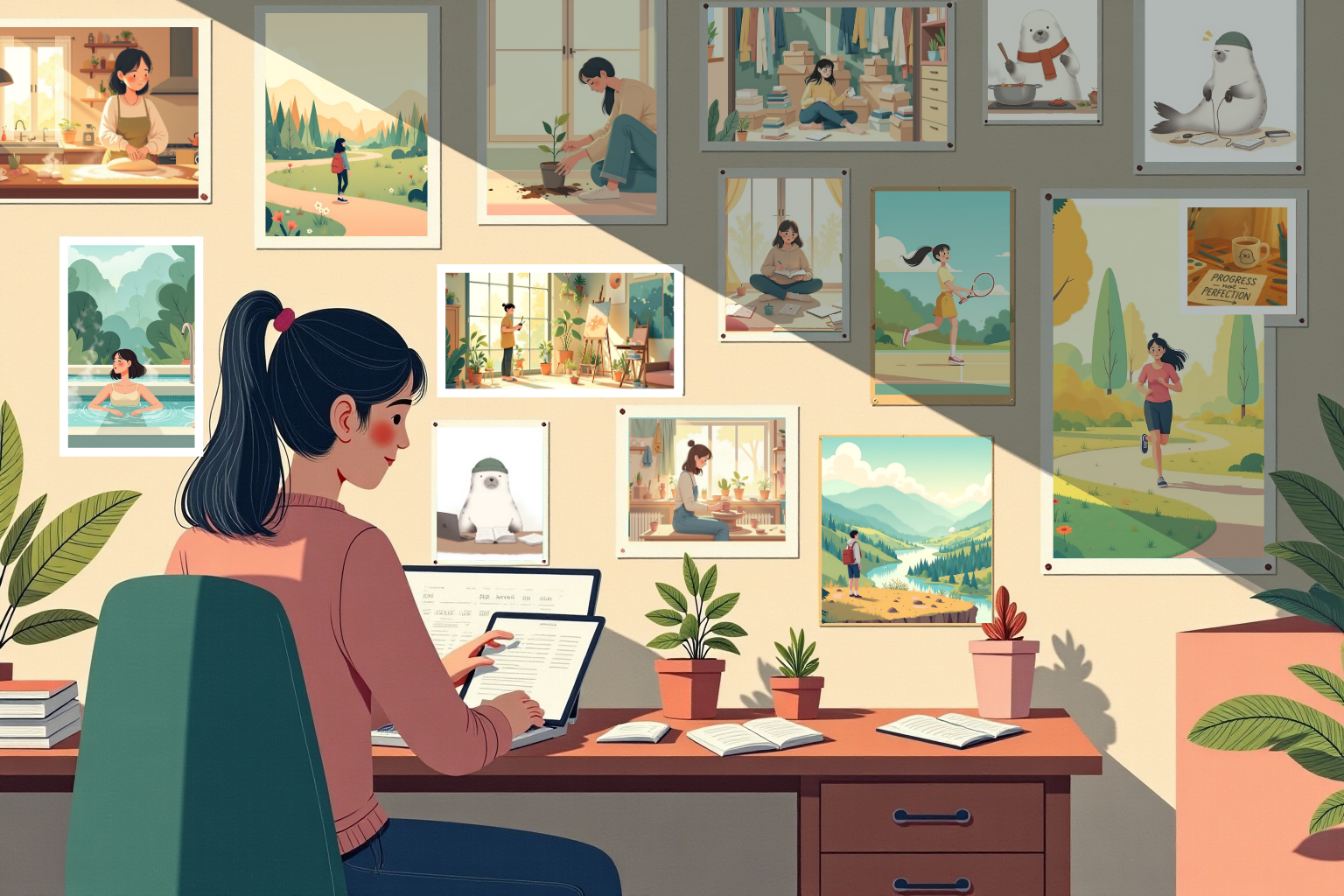5-minute read
Ever feel like you want a hobby but can’t seem to stick with one? You’re not alone. Between the pressure to be productive, the guilt of not “using time wisely,” and the sheer overwhelm of choices, finding a hobby that actually sticks can feel impossible. But hobbies aren’t supposed to be another task on your to-do list; they’re meant to bring joy. This guide will help you rediscover play, break free from hobby burnout, and find an activity that truly makes you happy.
Why Finding a Hobby is So Hard
Modern life makes hobbies way more complicated than they need to be. Here’s why:
- The Productivity Trap: If it doesn’t make money or serve a purpose, we feel guilty doing it.
- Too Many Choices: With endless options, choosing just one feels overwhelming.
- Instant Gratification Culture: If we’re not good at it immediately, we get discouraged.
- Time Anxiety: We assume we’re too busy when really, we just haven’t prioritized play.
- The Social Media Effect: Seeing “perfect” hobbyists online can make us feel like we’re already behind before we even start.
- The Fear of Wasting Time: Many of us hesitate to start something new because we worry it won’t be “worth it.”
Sound familiar? The good news is, it doesn’t have to be this way.
The Benefits of Having a Fulfilling Hobby
Engaging in a fulfilling hobby is more than just a way to pass time—it has tangible benefits for your mental, emotional, and even physical well-being:
- Reduces Stress: Hobbies give your brain a break from daily worries and help you recharge.
- Boosts Creativity: Creative hobbies help you think outside the box and inspire fresh ideas.
- Enhances Mental Health: Studies show that engaging in enjoyable activities can lower anxiety and depression.
- Improves Focus and Patience: Hobbies that require skill-building help develop patience and concentration.
- Builds Confidence: Mastering a new skill, even at a basic level, can boost self-esteem.
- Provides a Sense of Purpose: Having a hobby adds structure and joy to your routine, giving you something to look forward to.
The “Perfect Hobby” Myth: Stop Overthinking It
Somewhere along the way, hobbies became another thing we’re supposed to optimize. But hobbies don’t need to be useful—they just need to make you happy.
- You don’t need to be “good” at it. No one expects you to paint like Van Gogh or knit like a pro overnight.
- It doesn’t have to be productive. Your hobby doesn’t need to turn into a side hustle.
- It’s okay to switch it up. You’re not failing if you try different things. That’s part of the fun!
- Experimentation is key. If something isn’t a fit, move on and try another until something clicks.
The best hobbies are the ones that bring you joy, not the ones that fit into a perfect aesthetic.
How to Actually Find a Hobby You Love
If you’ve struggled to commit to a hobby, try this four-step process:
1. Reconnect with What You Loved as a Kid
Think back to childhood. What did you naturally gravitate toward? Drawing? Building things? Storytelling? Kids explore hobbies without overthinking them—follow that same curiosity now.
2. Try a “Low-Stakes Experiment”
Instead of diving all in, test out an activity in a casual way. Borrow supplies, take a one-time class, or watch a tutorial—no commitment required.
3. The 30-Minute Rule
Give a new hobby just 30 minutes. No pressure, no expectations—just time to see if it feels enjoyable.
4. Overcome Common Hobby Roadblocks
- “I don’t have time” → Start with 10-minute hobby sessions.
- “I’m not good at anything” → Skill comes with practice, not instant talent.
- “I don’t have the right tools” → Many hobbies can be started with minimal investment.
Fun Hobby Ideas Based on Your Personality
Need inspiration? Here are some hobby ideas depending on what excites you most:
- For Creative Minds: Watercolor painting, digital art, DIY crafts, journaling, photography.
- For Active Explorers: Hiking, roller skating, yoga, dance, rock climbing.
- For Quiet Thinkers: Puzzles, reading, chess, gardening, birdwatching.
- For Playful Experimenters: Improv, pottery, trying new recipes, comedy writing.
- For Tech Enthusiasts: Coding, video editing, 3D printing, robotics.
- For Social Hobbyists: Board games, volunteering, book clubs, improv groups.
Try one, mix a few, or make up your own—there’s no wrong way to enjoy a hobby.
Hobby Burnout: Recognizing When to Pause
Even hobbies can become stressful if we pressure ourselves too much. Here’s how to keep it fun:
- Give yourself permission to take breaks. No one says you have to practice daily.
- Avoid turning it into an obligation. If it feels like work, step back and reassess.
- Don’t let comparison ruin it. Your journey is yours—progress at your own pace.
Final Thought: Hobbies Are Meant to Be Fun
Finding a hobby isn’t about being the best or impressing others—it’s about you. It’s about giving yourself permission to play, experiment, and find joy in the little things. The best hobby? The one that makes you happy.




